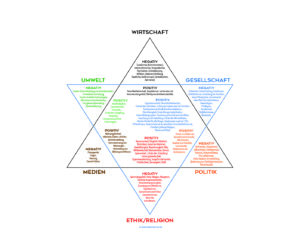“To summarize Hayek, here are the main points of disagreement between the true and false versions of individualism:
- Rule of law. The individualism requires that general principles of conduct apply, within which people are free to differ.
Pseudo-individualism insists on pragmatism; the ‘right sort of person’, that is the socialist, knows the correct course of action in each circumstance and needs no principles to guide him. He labels as ideology any demand that principles are followed. - True individualism requires that the state treat all people equally without regard for race, gender or status, in other words equality before the law.
Pseudo-individualism abandoned equality before the law in favor of equality of material goods, at least for all but the elite. - True individualism respected traditional morality and tended to be religious. Pseudo-individualism rejected tradition, especially morality, in favor of variable rules of behavior based on pseudo-reason in which the individual could understand the rationale and see the immediate consequences of his actions.
- Original individualism tamed envy;
pseudo-individualism inflamed it. - True individualism required limited government in order for the individual to have room to actualize his abilities.
Pseudo-individualism demanded absolute power for the state to mold human nature in its image. - True individualism allowed people the freedom to choose with whom they would associate. It valued family, church, small communities and other voluntary associations.
Pseudo-individualism valued only the state and sought to devalue all other associations. - True individualism embraced traditional Christianity.
False individualism tended to be atheist or deist. - For true individualism, every person has the power to reason for himself and choose his own goals and means as long as he remains within the borders of general principles, such as not stealing and not committing murder.
Pseudo-individualism accorded true reasoning ability only to an elite group, especially scientists headed by mathematicians. Commoners had to relinquish their abilities to reason and blindly follow the elite. On this point, socialism is clearly a regression to the caste system attributed to ancient Greece and Rome in which only an elite group possessed the ability to reason.”
Roger McKinney
“True individualism started with the idea that all men are equal before God. God treats the peasant and the king equally and requires both to obey his laws. It encouraged personal salvation instead of corporate salvation. Its emphasis on private property and the condemnation of envy, along with the demand that the people be allowed to enjoy the fruits of their own labor subdued envy for the first time.”
Roger McKinney



